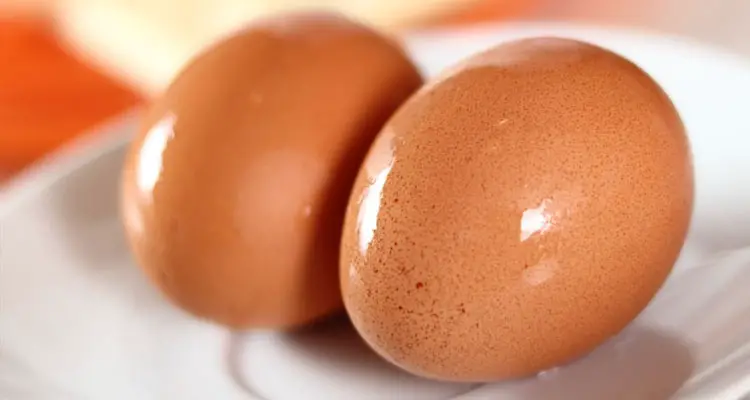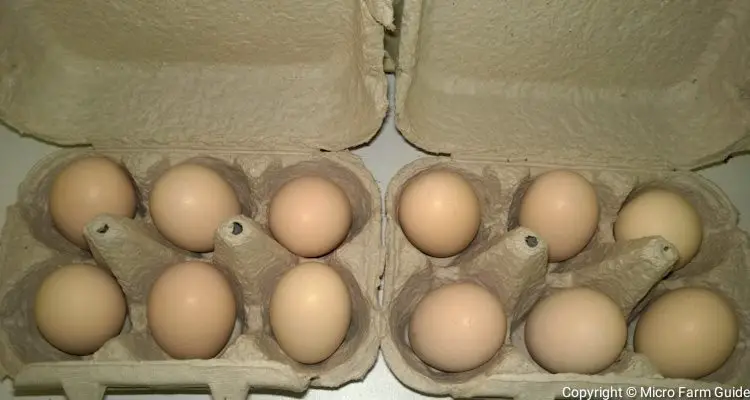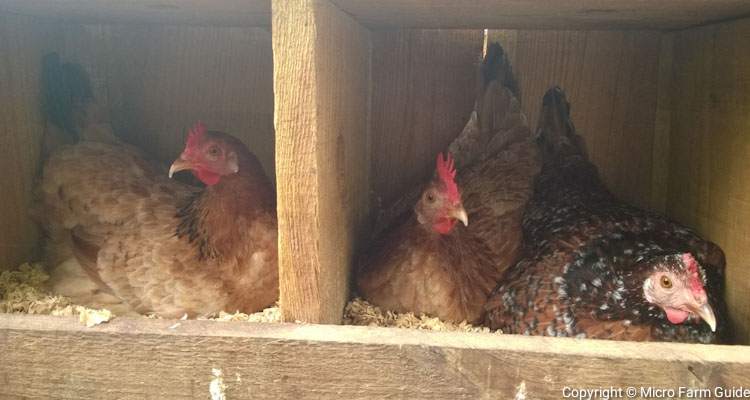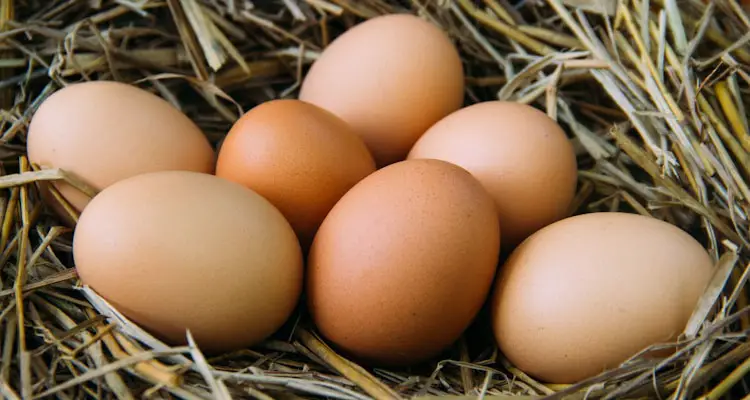If done incorrectly, washing eggs is potentially the worst thing you can do regarding food safety.
Nevertheless, if you need to clean fresh eggs, for one reason or another, wash them quickly in warm water to remove any dirt. Then remove excess moisture as soon as possible before storing.

Unfortunately, this can remove the protective coating, or the bloom, secreted by the chicken while laying the egg. This can create perfect conditions for bacteria and other harmful organisms to enter.
In this article, you’ll learn:
- How Not To Clean Fresh Eggs
- The Safest Method To Clean Fresh Eggs
- Why Is The “Bloom” Necessary?
- Does The Bloom Extend The Shelf Life Of An Egg?
- What Are The Best Alternatives To Cleaning Eggs?
How Not To Clean Fresh Eggs
Before we start, the golden rule when washing eggs is to minimize exposure to water.
In other words, do not soak your eggs since this will erode the protein-like coating and beckon in all manner of nasty microbial matter.
It’s also critical to stay away from cold water. It can trigger a vacuum effect, pulling potentially harmful bacteria through the shell and into the egg.
Please do not use scented or harsh detergents, as they will destroy the protective coating in a matter of seconds, allowing chemicals to soak through the pores of the exposed shell.
As you can see, there are several ways to get it wrong. Now let’s see how to do it correctly.
The Safest Method To Clean Fresh Eggs
The only way of washing the egg and keeping the protective coating, as intact as possible, is to use warm water, at a minimum temperature of 90 °F (32.2°C). Even then, soaking is strictly out of the question.
We need to be pretty swift with the cleaning process, as excessive water exposure will wipe out that bloom, so if you’ve got a lot of eggs to get through, don’t sit them in the water; wash them one by one.

Here’s how it’s done…
- Fill your sink or a tub with warm water (at least 90 °F)
- Submerge the egg.
- Please remove it from the water.
- Rub the shell gently with your thumbs or a soft bristle brush.
- Rinse off with more fresh warm water.
- Dry each with paper towels or a soft cloth after the rinse to preserve the bloom.
Thankfully, this process can be automated for larger establishments, with some systems resembling a “carwash” for eggs. Really cool stuff!
A Note On Detergent
Okay, I mentioned a moment ago that using scented or harsh detergents is the cardinal sin of cleaning fresh eggs, and I stand by it!
However, in many states across the US, using some form of detergent is required by law.
My suggestion is to find the mildest unscented soap you can. Do bear in mind, though, that it must meet FDA regulations. Needless to say, any detergents containing bleach are a terrible idea.
Skip the detergent altogether if you use your eggs yourself instead of selling them, as long as you take good care of your animals and their facilities,
Why Is The “Bloom” Necessary?
Eggshell may seem impenetrable, but it is an incredibly porous material containing as many as 8000 pores, allowing the passage of matter from outside.
The bloom secretion fills in these pores so no harmful bacteria can reach the egg white on the inside.
This is why food standards institutions, in certain European nations, expressly forbid washing commercial eggs.
In other countries where washing is permitted, only unwashed eggs receive the top food quality ratings.
Does The Bloom Extend The Shelf Life Of An Egg?
Yes, the bloom protects the egg from bacteria that, if left unchecked, can expedite the expiration process.
Not washing your eggs can add up to 4 weeks to their shelf life!
Read on if you’re still wondering how to ensure your eggs are clean and safe if you’re not physically washing them yourself.
What Are The Best Alternatives To Cleaning Eggs?
Although the thought of our eggs traveling through a chicken’s bum isn’t appetizing, the egg isn’t dirty on its journey through the bird.
Contamination occurs after the egg has been laid. To prevent contamination, you must keep your chicken coops in tip-top shape. To do this:

1. Keep Your Chicken Coop Clean
Using the self-sanitizing principle of KNF Chicken Coop designs would be best. This will save you a lot of work.
Otherwise, you should eliminate excrement and replenish bedding when necessary to combat egg contamination.
I’d recommend doing a standard cleaning at least once a week, adding dry material to help control moisture and odor. And deep clean at least once a year or more in wet climates.
2. Keep Roosts Away From Nesting Boxes
Chickens naturally love to roost at higher altitudes, so your best bet is setting up roosts above and away from the nest box.
While both of these sections of a coop are used for sleeping, only a nesting box can be used to lay and incubate eggs. So separating them is an excellent way of keeping filth in a permissible zone while keeping the nest nice and clean.
Adding slanted ceilings onto nesting boxes will also help keep these coop sections separate. As this will discourage chickens from trying to roost on the roof of the box.
3. Collect Eggs As Promptly As Possible
Since the egg is clean when laid, the apparent course of action is to collect them before chickens can dirty them.

Note: Despite this, the USDA has ruled that all commercial eggs must be washed before they hit the market.
Final Thoughts
Cleaning fresh eggs should be done with 90 °F water and mild, FDA-approved detergent – where required by law.
However, if you live outside the USA, please consult your local regulations to see if washing is necessary. Remember, it is far better to avoid washing them at all.
Nevertheless, As long as you’re not planning on selling your eggs, you can keep them clean by staying on top of your coop maintenance schedule.
References
The Center For Food Security & Public Health. Cleaning And Disinfection On The Farm: Farm Fresh Eggs. (PDF) Accessed November 2022

